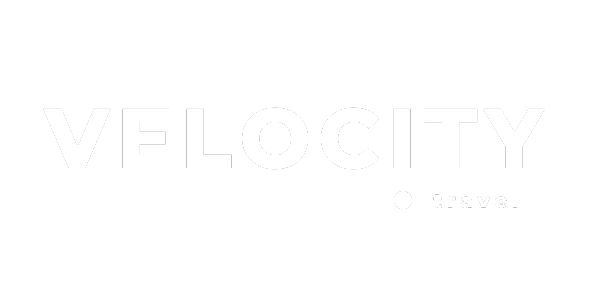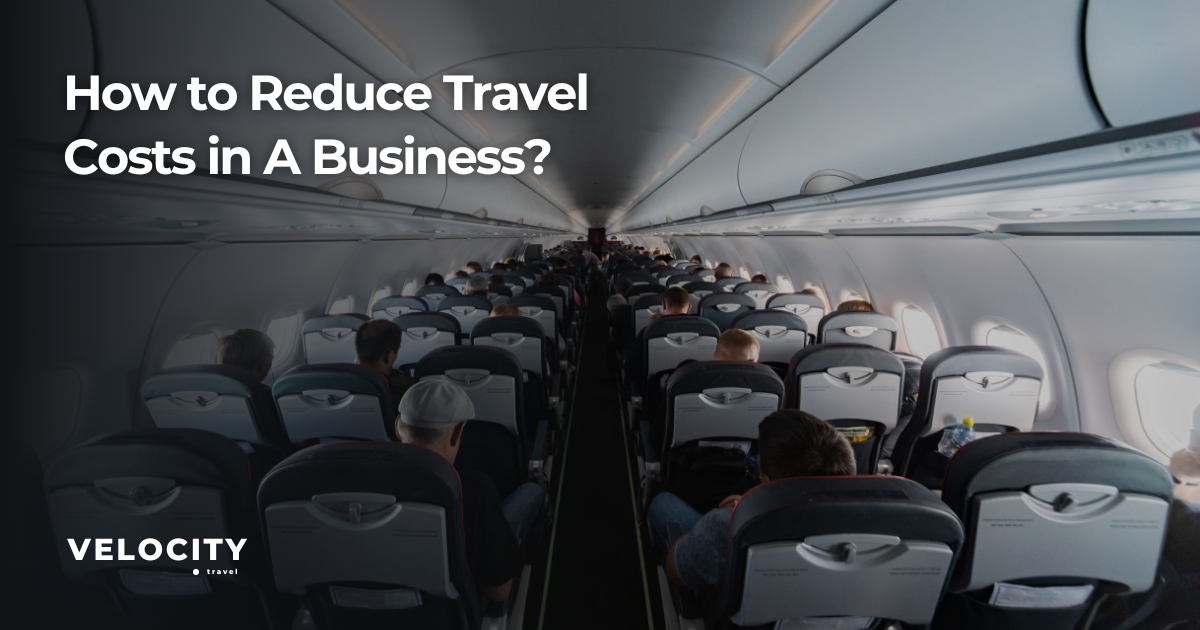In India, corporate travel expenses are a significant component of business budgets, with companies spending an estimated ₹2.5 lakh crore on business travel annually. As the economy recovers and travel restrictions ease, businesses seek effective strategies to manage these costs. Understanding how to reduce travel costs in a business is essential for maintaining profitability while ensuring employee satisfaction and productivity during trips.
Table of Contents
ToggleThis article will explore practical strategies organisations can implement to optimise travel expenses. From establishing comprehensive travel policies to leveraging technology and negotiating with suppliers, we will explore various methods that can lead to substantial savings. By the end of this article, you will be equipped with actionable insights that can transform your corporate travel approach and enhance your overall financial performance.
Understanding Corporate Travel Expenses
Corporate travel expense optimization typically includes airfare, accommodations, meals, and ground transportation. A thorough understanding of these costs is crucial for identifying potential areas for savings.
| Expense Category | Typical Costs | Potential Savings Strategies |
| Airfare | ₹15,000 – ₹60,000 per trip | Book in advance, use fare comparison tools |
| Accommodations | ₹3,000 – ₹15,000 per night | Negotiate corporate rates, use loyalty programs |
| Meals | ₹500 – ₹2,000 per day | Implement per diem allowances |
| Ground Transportation | ₹1,000 – ₹5,000 per trip | Use ride-sharing services or public transport |
By analysing historical data on these expenses, businesses can identify patterns and make informed decisions about where to cut costs without compromising service quality.
Establishing a Comprehensive Travel Policy
A robust corporate travel policy is foundational for controlling expenses. This policy should clearly outline:
- Booking Procedures: Define how employees should book travel and what platforms they should use.
- Expense Limits: Set clear limits on airfare, accommodations, meals, and other expenses.
- Approval Processes: Establish who needs to approve travel requests and under what circumstances.
Travel management tools like Velocity Travel specialise in helping businesses develop tailored travel policies that align with their objectives while ensuring compliance and cost-effectiveness.
Implementing a Pre-Trip Approval Process
One effective way to manage travel costs is through a pre-trip approval process. By requiring approvals for all bookings, companies can prevent unauthorised expenditures and ensure compliance with the established travel policy.
- Automated Systems: Use travel management software like Velocity Travel to automate approval workflows. This streamlines the process and provides visibility into spending patterns.
- Notification Alerts: Set up alerts for trips that require approval within a specified timeframe (e.g., trips booked less than ten days in advance).
This proactive approach helps organisations control travel budgets while ensuring employees know spending limits.
Encouraging Advanced Planning and Booking
Encouraging employees to book their travel well in advance can lead to significant cost savings. Last-minute bookings often come with premium prices, while early reservations offer lower rates.
- Booking Timeline: Aim for bookings at least 21 days before departure to take advantage of lower fares.
- Flexible Dates: Encourage flexibility in travel dates to capitalise on fluctuating prices.
Utilising Technology and Travel Management Software
Leveraging technology is crucial for optimising corporate travel expenses. Travel management software can provide valuable insights into spending patterns and help identify cost-saving opportunities.
- Data Analytics: Use analytics tools to track expenses across different categories and identify areas for adjustments.
- Supplier Management: Partner with a travel management company (TMC) like Velocity Travel offers comprehensive supplier management services, ensuring access to negotiated rates with airlines, hotels, and car rental companies.
Integrating these technologies into your corporate travel strategy can streamline processes and enhance overall efficiency.
Exploring Cost-Saving Strategies for Air Travel
Airfare is often one of the largest components of corporate travel expenses. Here are some strategies to reduce these costs:
- Fare Comparison Tools: Utilise platforms that allow employees to compare fares across multiple airlines.
- Corporate Discounts: Establish partnerships with specific airlines to secure discounted rates for frequent travellers.
- Flexible Travel Options: Encourage employees to consider alternative airports or flight times that may offer lower fares.
Implementing these strategies can lead to substantial savings on air travel costs.
Reducing Accommodation Costs
Accommodation expenses can quickly add up during business trips. To manage these costs effectively:
- Negotiate Rates: Work with preferred hotel partners to negotiate lower rates based on volume bookings.
- Loyalty Programs: Encourage employees to enrol in hotel loyalty programs that offer discounts and perks.
- Alternative Accommodations: Consider using serviced apartments or vacation rentals as cost-effective alternatives for longer stays.
Velocity Travel assists businesses in accessing exclusive hotel rates through its extensive network of partnerships.
Managing Ground Transportation Expenses
Ground transportation is another area where businesses can save money:
- Ride-sharing services: Promote ride-sharing apps as a more economical alternative to traditional taxis.
- Public Transport Options: Encourage employees to use public transportation when feasible.
- Fleet Agreements: For frequent travellers, establish agreements with car rental companies for discounted rates on vehicle rentals.
By optimising ground transportation choices, companies can significantly reduce their overall travel expenditures.
Meal Management During Business Travel
Meal expenses are an often-overlooked area in corporate travel budgets. To control these costs:
- Per Diem Allowances: Implement per diem allowances instead of reimbursing actual meal expenses. This sets clear spending limits and simplifies expense reporting.
- Complimentary Meals: Encourage employees to take advantage of complimentary breakfasts or other meal offerings from hotels or events.
This approach helps manage costs and enhances employee satisfaction during trips.
Incentivising Cost-Conscious Behaviour Among Employees
Creating a culture of cost-consciousness among employees can lead to significant savings:
- Reward Programs: Develop incentive programs that reward employees for choosing more economical options when booking flights or accommodations.
- Recognition Initiatives: Acknowledge those who consistently find ways to save on travel expenses through public recognition or small rewards.
These initiatives foster a sense of responsibility among employees regarding their travel choices.
Regular Monitoring and Auditing of Travel Expenses
To maintain control over corporate travel costs, regular monitoring and auditing are essential:
- Expense Reports: Implement a system for reviewing expense reports regularly to identify trends and areas for improvement.
- Budget Comparisons: To assess performance, compare actual spending against budgeted amounts quarterly or annually.
Velocity Travel provides advanced reporting tools that help businesses track their spending effectively and identify opportunities for further savings.
How Does Velocity Travel Help in Reducing Travel Costs in a Business?
Businesses are continually seeking ways to optimise their travel expenses while ensuring a seamless experience for their employees. Velocity Travel stands out as a strategic partner in this endeavour, offering a comprehensive suite of services designed to help organisations effectively manage and reduce travel costs. Here’s how Velocity Travel can assist businesses in achieving significant savings:
-
Comprehensive Travel Management Solutions
Velocity Travel provides an all-encompassing approach to corporate travel management, addressing every aspect, from booking to expense tracking. The user-friendly online booking platform allows employees to easily book flights, hotels, and ground transportation, saving time and ensuring compliance with company policies. Automated reporting tools help businesses track travel expenses in real-time, providing insights into spending patterns and identifying areas for potential savings.
-
Data-Driven Insights for Cost Optimisation
Access to comprehensive data analytics empowers businesses to make informed decisions regarding their travel expenditures. By analysing historical travel data, Velocity Travel helps identify trends and cost-saving opportunities that might go unnoticed, ensuring that every trip is optimised for budget efficiency.
-
Tailored Travel Policies
Velocity Travel collaborates with businesses to develop customised travel policies that align with their unique needs. These policies provide clear guidelines on booking procedures, expense limits, and approval processes, helping employees make informed decisions while adhering to budget constraints.
-
Negotiated Rates and Supplier Partnerships
Leveraging extensive industry connections, Velocity Travel negotiates competitive rates with airlines, hotels, and car rental companies. Access to exclusive corporate rates translates into substantial savings across various travel categories.
-
Advanced Technology Integration
Velocity Travel’s innovative solutions enhance efficiency through advanced travel management software that provides real-time visibility into expenses. Mobile-friendly features allow employees to manage bookings on the go, ensuring flexibility during their travels.
-
Focus on Employee Well-being
Prioritising traveller safety and well-being is integral to Velocity Travel’s approach. Employees can travel with peace of mind with 24/7 support services and comprehensive travel insurance options.
-
Continuous Improvement through Feedback
Velocity Travel believes in continuous improvement through client feedback. Regular assessments of travel policies and procedures help organisations adapt to changing needs and optimise their strategies further.
Partnering with Velocity Travel equips businesses with the tools to manage and reduce corporate travel costs effectively.
Conclusion
Reducing travel costs in a business requires a strategic approach encompassing various aspects of corporate travel management. Organisations can achieve significant savings without compromising service quality by implementing comprehensive policies, leveraging technology, negotiating with suppliers, and fostering a culture of cost awareness among employees.
Velocity Travel stands ready as your partner in optimising corporate travel management in India, providing tailored solutions that align with your business goals while ensuring compliance and efficiency.
Are you ready to take control of your corporate travel expenses? Partner with Velocity Travel today and discover how our expertise can help you implement effective strategies for reducing costs while enhancing employee satisfaction during business trips.
FAQs on Reducing Travel Costs in a Business
What are the main components of corporate travel expenses?
Corporate travel expenses typically include airfare, accommodations, meals, and ground transportation. Understanding these components is crucial for identifying areas where businesses can implement cost-saving strategies. By analysing these expenses, companies can make informed decisions to optimise their travel budgets.
How can a company effectively reduce travel costs?
Companies should establish a comprehensive travel policy to reduce travel costs, encourage advanced booking, utilise technology for expense tracking, and negotiate with suppliers for better rates. Additionally, implementing a pre-trip approval process can help control spending and ensure compliance with budget guidelines.
What role does Velocity Travel play in managing corporate travel expenses?
Velocity Travel offers tailored travel management solutions that streamline the booking process and provide valuable data analytics to identify cost-saving opportunities. Our expertise in negotiating competitive rates with airlines and hotels further helps businesses reduce travel expenses while ensuring compliance with company policies.
Why is it important to have a travel policy in place?
A well-defined travel policy is essential for guiding employees toward cost-effective choices while travelling. It sets clear guidelines on booking procedures, expense limits, and approval processes, ensuring consistency and compliance across the organisation. This ultimately leads to better management of travel budgets.
How does technology enhance corporate travel management?
Technology enhances corporate travel management by providing tools that automate booking processes, track real-time expenses, and offer data-driven insights into spending patterns. Velocity Travel’s advanced travel management software enables businesses to streamline their operations, making informed decisions that lead to significant cost savings.

